Shadow First Secretary of State
The Shadow First Secretary of State is a position in the United Kingdom's Shadow Cabinet that was created on 11 May 2015 by the Leader of the Opposition, Harriet Harman for her interim shadow cabinet. Prior to 2015, the office was known as Shadow Deputy Prime Minister of the United Kingdom. Even though the role has no specific responsibilities attached to it, the holder of the position shadows the First Secretary of State and deputises for the Leader of the Opposition in Prime Minister's Questions when the First Secretary is deputising for the Prime Minister.[1] The current office-holder is Deputy Labour Leader Angela Rayner, who succeeded Emily Thornberry in April 2020.
| Shadow First Secretary of State | |
|---|---|
| Shadow Cabinet | |
| Appointer | Leader of the Opposition |
| Formation | 11 May 2015 |
| First holder | Jack Straw (Acting Shadow Deputy Prime Minister of the United Kingdom) Hilary Benn (Acting) |
| Website | Shadow Cabinet |
List of Shadow Ministers and Secretaries
Shadow Deputy Prime Minister of the United Kingdom | ||||||
|---|---|---|---|---|---|---|
| Shadow Deputy Prime Minister | Term of Office | Political Party | Leader of the Opposition | |||
| Jack Straw Acting |
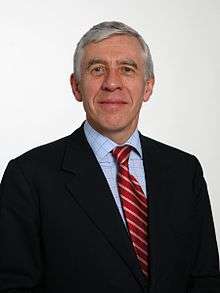 |
11 May 2010 | 25 September 2010 | Labour | Harriet Harman | |
| Harriet Harman | 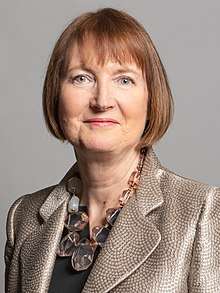 |
7 October 2010 | 8 May 2015 | Labour | Ed Miliband | |
Shadow First Secretary of State | ||||||
| Shadow First Secretary | Term of Office | Political Party | Leader of the Opposition | |||
| Hilary Benn Acting |
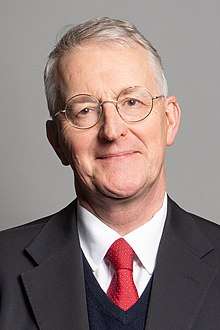 |
11 May 2015 | 13 September 2015 | Labour | Harriet Harman | |
| Angela Eagle | 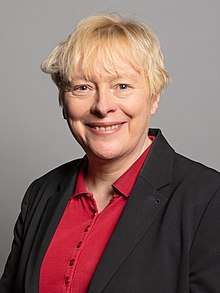 |
13 September 2015 | 27 June 2016 | Labour | Jeremy Corbyn | |
| Office not in use from June 2016 to June 2017. | ||||||
| Emily Thornberry | 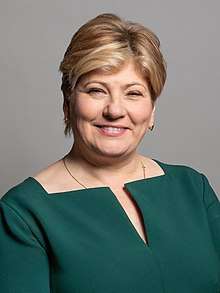 |
14 June 2017 | 5 April 2020 | Labour | Jeremy Corbyn | |
| Angela Rayner | 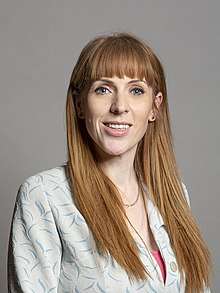 |
9 April 2020 | Present | Labour | Keir Starmer | |
gollark: They don't interfere or block it, the eye just interprets "green plus things" as some other color.
gollark: Also true but not very relevant.
gollark: Sure.
gollark: Assuming by "higher low frequencies" you mean "more intensity at the lower frequencies".
gollark: Yes.
See also
References
- "Brexit: Green and Thornberry Prime Minister's Questions clash". BBC News Online. Retrieved 12 July 2017.
This article is issued from Wikipedia. The text is licensed under Creative Commons - Attribution - Sharealike. Additional terms may apply for the media files.